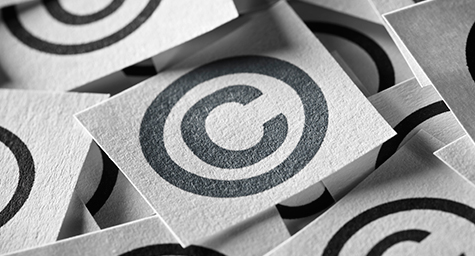Stop Risking Your Agency’s Intellectual Property
Your agency puts its heart into its work, but are you using your head to protect your intellectual property? With the rise of digital media and more multi-agency collaboration today, it’s time to wake up and wise up about protecting your agency’s intellectual property. If you don’t, this can do damage to your business and destroy your client relationships. To protect your company and your clients, Hubspot.com shared expert tips to help you mind your intellectual property rights.
1. Don’t Pitch Your Intellectual Property with a Business Pitch
Most advertising pitches involve creating intellectual capital or spec work in an effort to get the business. Yet all too often, agencies don’t require prospective clients to sign non-disclosure agreements for fear of harming their chances. Other times, prospective clients boldly refuse to sign them. But it’s important for an agency to protect all of the intellectual property it pitches to avoid having its concepts stolen. To protect the work you pitch, follow this expert advice:
- Add specific intellectual property ownership language into all proposal documents.
- Include a copyright symbol on all proposed creative materials.
- Create a service agreement that clearly states the agency’s terms to send to prospective clients.
- Clearly express to prospects that everything in the proposal document is proprietary to the agency and cannot be used by the prospect unless an agreement is signed.
2. Pay Attention to Adding Fair Payment Terms to Client Contracts
Sometimes, getting paid can present problems with clients. That’s why an agency must have a solid understanding of the various payment compensation structures and determine their ideal model. Then, the agency must clearly express their specific payment structure to each client.
Just as important as the verbal message is the contractual language. Each client contract must precisely outline the payment terms and timeline. Plus, it must specify that there is no transfer of intellectual property control until the client has agreed to pay for it.
Another issue that poses problems is portfolio rights since agencies like to show off their other client work in order to earn more accounts. But before presenting the work for another client to a new prospect, the other client’s contract must give the agency the rights to use the work for commercial purposes.
3. Get Legal Protection for Branding Work
It’s essential to avoid having new branding in conflict with an existing trademark because this can sabotage or sever your client relationship. To prevent this problem, seek the necessary legal clearance and protection for all branding work before putting it into use.
4. Don’t Freely Assume That an Agency Owns Freelance Work
With more and more agencies using freelancers today, the question can arise over who owns the rights to freelance work. Be aware that without direct language about transfer of intellectual property and a signed document, the work is owned by the freelancer regardless of agency payment. As a result, your agency could be selling work to a client without possessing the rights to it. On the other side of the issue is the freelancer’s use of the work in their portfolio. Agencies must clearly spell out whether freelancers can include a client’s work or name in their portfolios, as well as whether they can personally solicit these clients for future work.
5. Agencies Must Care About Properly Sharing Social Media Content
With social media’s emphasis on sharing, many agencies fail to attribute social content to its proper source. That’s why it’s important that all agency staff understand that everything online isn’t free or fair to share. They also need to know that each piece of client work is commercial and protected.
Further complicating the matter are the specific disclosure guidelines for social and influencer campaigns that agencies run for clients. Make sure that there is a sponsor notice or clear language on all content that is used to promote a brand or product online in order to protect all parties involved.
By minding these intellectual property matters, an agency can protect all of its rights and relationships.
Get smart about protecting your ad agency’s intellectual property rights. Contact MDG.
MDG, a full-service advertising agency with offices in Boca Raton and New York, NY, is one of Florida’s top branding firms. MDG’s capabilities include print advertising, direct mail marketing, branding, logo design, creative, media buying and planning, radio and TV advertising, outdoor, newspaper, digital marketing, website design and development, online video advertising, infographic development, –, video marketing, mobile marketing, content marketing, social media marketing, paid search marketing, and SEO. To learn about the latest trends in advertising and branding, contact MDG.

